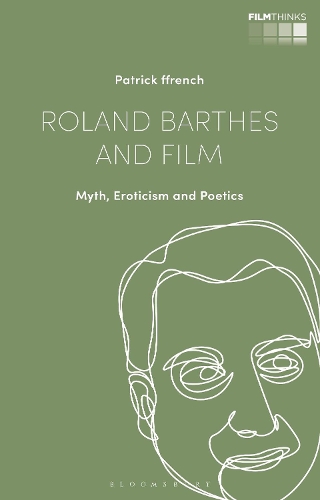
Roland Barthes and Film: Myth, Eroticism and Poetics
(Paperback)
Publishing Details
Roland Barthes and Film: Myth, Eroticism and Poetics
By (Author) Patrick ffrench
Bloomsbury Publishing PLC
Bloomsbury Academic
22nd April 2021
United Kingdom
Classifications
Tertiary Education
Non Fiction
Philosophy: aesthetics
Photography and photographs
Social and political philosophy
791.4301
Physical Properties
Paperback
328
Width 136mm, Height 214mm, Spine 20mm
400g
Description
Suspicious of what he called the spectators sticky adherence to the screen, Roland Barthes had a cautious attitude towards cinema. Falling into a hypnotic trance, the philosopher warned, an audience can become susceptible to ideology and myth. In this book, Patrick Ffrench explains that although Barthes was wary of film, he engaged deeply with it. Barthes thought was, Ffrench argues, punctuated by the experience of watching films and likewise his philosophy of photography, culture, semiotics, ethics and theatricality have been immensely important in film theory. Focusing particularly on the essays The Third Meaning and On Leaving the Cinema and the acclaimed book Camera Lucida, Ffrench examines Barthes writing and traces a persistent interest in films and directors, from Fellini and Antonioni, to Eisenstein, the Marx Brothers and Hitchcock. Ffrench explains that although Barthes found pleasure in leaving the cinema disconnecting from its dangerous allure by a literal exit or by forcefully breaking the trance he found value in returning to the screen anew. Barthes delved beneath the pull of progressing narrative and the moving image by becoming attentive to space and material aesthetics. This book presents an invaluable reassessment of one of the most original and subtle thinkers of the twentieth-century: a figure indebted to the movies.
Author Bio
Patrick ffrench is Professor of French at King's College London, where he teaches modern French literature and thought.
